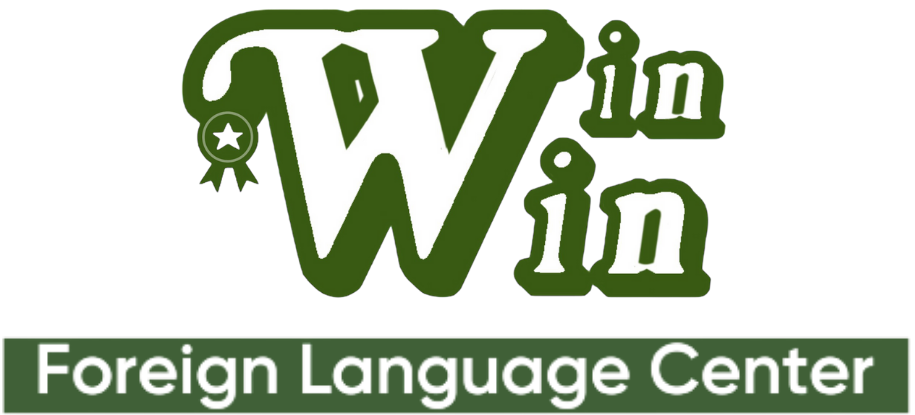✨Part 2: A water sport you'd like to try
- What it is
- Is it difficult
- How to play
- Why you’d like to play it
One water sport that I would love to try is surfing. It is a sport where individuals ride waves on a surfboard, maneuvering and balancing their bodies to catch and ride the wave's energy.
Surfing can be considered a moderately difficult sport to learn. It requires a combination of physical fitness, balance, coordination, and an understanding of wave dynamics. Mastering the art of riding waves and maintaining stability on the board can take time and practice. However, with proper instruction and dedication, individuals can gradually improve their skills and enjoy the experience of surfing. To play, one needs a surfboard designed for riding waves, suitable protective gear such as a wetsuit, and access to a beach with suitable waves for surfing. Beginners typically start by learning the basics on smaller waves, gradually progressing to more challenging conditions as they gain confidence and skill. Paddling out into the water, timing and catching the wave, and then riding it while maintaining balance are key aspects of the sport. I would love to try surfing because it combines elements of adventure, nature, and physical activity. The idea of riding a wave, feeling the power and rhythm of the ocean, and being in harmony with nature is incredibly appealing to me. Surfing also offers a sense of freedom and a chance to escape from the hustle and bustle of everyday life. It seems like an exhilarating and immersive experience that allows individuals to connect with both the ocean and their own inner selves.
Overall, I am drawn to the beauty and excitement that surfing promises, and I would love to challenge myself and embrace the waves in this water sport.
- Surfboard: /ˈsɜːfˌbɔːd/ (n) - một loại ván lướt sóng
- Maneuvering: /məˈnuːvərɪŋ/ (n) - kỹ thuật lái xe, kỹ năng điều khiển
- Moderately: /ˈmɒdərətli/ (adv) - một cách vừa phải, một cách khá, một cách trung bình
- Combination: /ˌkɒmbɪˈneɪʃən/ (n) - sự kết hợp, sự phối hợp, sự hợp thành
- Stability: /stəˈbɪləti/ (n) - tính ổn định, tính định, tính bền vững
- Dedication: /ˌdedɪˈkeɪʃən/ (n) - sự cống hiến, sự tận tâm, lòng tận tụy
- Aspects: /ˈæspekts/ (n) - các khía cạnh, các mặt, các góc độ
- Combines: /kəmˈbaɪnz/ (v) - kết hợp, phối hợp, hợp nhất
- Incredibly: /ɪnˈkredəbli/ (adv) - một cách đáng kinh ngạc, một cách khó tin, một cách phi thường
- Individuals: /ˌɪndɪˈvɪdʒʊəlz/ (n) - cá nhân, người độc lập
- Excitement: /ɪkˈsaɪtmənt/ (n) - sự phấn khích, sự hào hứng, sự kích động
Part 3
✨What kinds of water sports are popular in Vietnam?
Vietnam, with its extensive coastline and numerous rivers, offers a range of popular water sports. To illustrate, activities such as swimming, snorkeling, scuba diving, kayaking, and jet skiing attract enthusiasts and tourists alike. Traditional water sports like dragon boat racing and traditional fishing practices are also prevalent in certain regions. That’s why I think water sports have always been and will still be popular with the Vietnamese.
✨Why do people like spending time near water?
There are several reasons why people find solace and enjoyment in spending time near water. What I’m trying to say is that water bodies, such as oceans, rivers, and lakes, offer a sense of tranquility and relaxation. Take the calming sound of water and the refreshing environment by way of example. They can provide a peaceful retreat from the stresses of one’s everyday life. Moreover, water-based activities provide opportunities for recreation, adventure, and connecting with nature.
- solace: /ˈsɑːləs/ (noun) - sự an ủi, sự xoa dịu.
- tranquility: /træŋˈkwɪləti/ (noun) - sự yên tĩnh, thanh bình.
- retreat: /rɪˈtriːt/ (noun) - nơi nghỉ dưỡng, nơi trốn tránh.
- water-based: /ˈwɔːtər-beɪst/ (adjective) - dựa trên nước; liên quan đến nước.
✨What are the advantages of water transport?
Water transport offers several upsides. One of which is a cost-effective mode of transportation for moving large quantities of goods and materials, particularly over long distances. Furthermore, it enables access to remote areas, promotes international trade, and supports the tourism industry through cruise ships and ferries. A prime example of this is when comparing the cost of transporting goods overseas on water as opposed to on air as the former is more wallet-friendly than the latter.
- transport: /ˈtrænspɔːrt/ (verb/noun) - vận chuyển, phương tiện vận chuyển.
- cost-effective: /ˈkɑːst ɪˈfektɪv/ (adjective) - mang lại hiệu quả kinh phí.
- promotes: /prəˈmoʊts/ (verb) - thúc đẩy, quảng cáo.
- cruise: /kruːz/ (noun/verb) - du thuyền, đi chơi trên tàu du lịch.
- transporting: /trænsˈpɔːrtɪŋ/ (adjective) - liên quan đến vận chuyển.
- opposed: /əˈpoʊzd/ (adjective) - chống đối, phản đối.
- wallet-friendly: /ˈwɑːlɪt-ˌfrendli/ (adjective) - giá cả hợp lý, phải chăng.
✨What are the disadvantages of water transport?
While water transport has its benefits, there are also drawbacks to consider. It generally takes longer to transport goods via water compared to air or land transport. Delays can occur due to factors like adverse weather conditions, port congestion, or the need for transshipment. In addition, the infrastructure and maintenance costs associated with water transport can be substantial, making it less feasible for certain regions or inland areas.
- drawbacks: /ˈdrɔːbæk/ (noun) - những hạn chế, điểm yếu.
- transport: /ˈtrænspɔːrt/ (verb/noun) - vận chuyển, phương tiện vận chuyển.
- maintenance: /ˈmeɪntənəns/ (noun) - bảo trì, sự duy trì.
- associated: /əˈsoʊʃieɪtɪd/ (adjective) - liên quan, kết hợp.
- substantial: /səbˈstænʃəl/ (adjective) - đáng kể, đáng kể.
✨Is it important to teach children how to swim?
Teaching the young to swim is crucial for their safety and well-being as it is considered a life skill that can prevent drowning accidents and increase water safety awareness. Not only does it promote physical fitness, it also enhances coordination and boosts confidence in and around water. Moreover, learning to swim at an early point in life can also open up opportunities for recreational activities and water sports, fostering a lifelong enjoyment of aquatic environments. For that reason, it is absolutely necessary for young children to take up swimming at an early age.
- crucial: /ˈkruːʃl/ (adjective) - quan trọng, cốt yếu.
- well-being: /ˌwel ˈbiːɪŋ/ (noun) - sự an toàn, sự khỏe mạnh, sự tốt đẹp.
- coordination: /koʊˌɔːrdəˈneɪʃn/ (noun) - sự phối hợp, sự hòa hợp.
- recreational: /ˌrekriˈeɪʃənəl/ (adjective) - giải trí, giúp thư giãn.
- fostering: /ˈfɑːstərɪŋ/ (verb) - tạo điều kiện, tạo môi trường thuận lợi.
✨Who should teach them?
From my point of view, children should be taught how to swim by trained and qualified instructors. Professional swim coaches or swimming instructors with expertise in teaching children can provide proper guidance, ensure safety measures are in place, and offer structured learning experiences. Additionally, parents or guardians can play a supportive role by encouraging and supervising their children during swimming lessons or recreational water activities.
1 danh sách phát âm, phân loại từ sử dụng kí hiệu tóm tắt và dịch nghĩa cho các từ sau : expertise, guidance, guardians, encouraging, recreational
- expertise: /ˌekspɜːrˈtiːz/ (noun) - chuyên môn, chuyên gia.
- guidance: /ˈɡaɪdəns/ (noun) - sự hướng dẫn, chỉ dẫn.
- guardians: /ˈɡɑːrdiənz/ (noun) - người bảo vệ, người giám hộ.
- encouraging: /ɪnˈkɜːrɪdʒɪŋ/ (adjective) - động viên, khích lệ.
- recreational: /ˌrekriˈeɪʃənəl/ (adjective) - giải trí, giúp thư giãn.
Xem thêm các bài viết về Speaking Part 2 và 3 ở đây bạn nhé
Đừng ngần ngại để lại thông tin hoặc liên hệ với chúng mình qua địa chỉ sau đây để IELTS WinWin có thể hỗ trợ tốt nhất cho bạn nhé!
Địa chỉ: 118 Nguyễn Xuân Khoát, P. Tân Thành, Q. Tân Phú, TP. Hồ Chí Minh.
Fanpage: IELTS WinWin
Zalo: 0965 439 239 – 085 301 8788
Website: ieltswinwin.com



